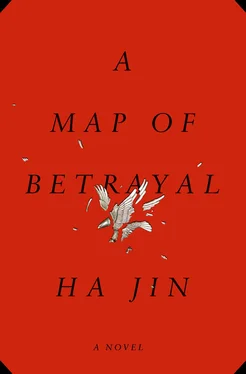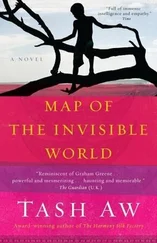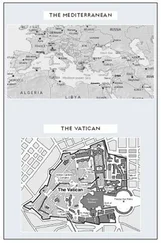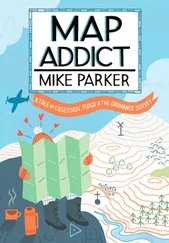He had no idea that ever since the hefty sum of money had been transferred stateside from Hong Kong, the FBI had been following him. They launched a thorough investigation, and all the findings enabled them to connect the dots: now they realized that Mao’s remark about the Oval Office was by no means a joke or brag. The ghost spy had finally revealed his shadow. All attention was now focused on Gary Shang, and he was kept under strict surveillance, his mail and phone calls monitored and his bills examined. They also installed a secret camera near his home, in a neighbor’s house across the street, whose top floor they had rented. The longer they followed him, the more amazed they were by his simple, casual fashion of conducting espionage. In many ways he seemed unprofessional. For instance, few spies would go to East Asia in person year after year and write to their handlers directly in the regular mail. His disregard for the general practice of spycraft, however, singled him out as an expert mole, who had succeeded in staying below the radar and concealing his trail for three decades. They concluded that he had to be stopped without delay; the damage he’d done already was unimaginable. If they didn’t act now, Gary Shang, holding a U.S. passport, might flee abroad the minute he sensed danger. He could even bolt into the Chinese embassy.
They obtained an approval from the Justice Department for “interviewing” the suspect, and without informing the CIA, which they feared might interfere with the mole hunt, they went ahead. Three agents arrived at the Shangs’ one afternoon in September, and Gary answered the doorbell. His wife was in Seattle to visit her sister, who’d just had cataract surgery, and their daughter was in Boston, a first-year grad student at BU. Gary appeared calm and let in the agents, as though he’d been expecting them all along. He must have assumed they had accumulated enough evidence against him, so this was the final hour he had to face, a scenario he had played out in his mind often enough that he was almost familiar with it. It was good he was home alone. He led the three men into the dining room and sat them at the table, while he took the seat at its head. He looked meek but undaunted.
One of the men started “the interview,” speaking politely, as if out of respect for a senior colleague. But before answering, Gary said, “I will tell you all the truth on one condition.” It was neither a demand nor a request, as though he was certain this should be the way for them to talk.
“What’s that?” asked a man who had a pink face.
“My family and my girlfriend, Suzie Chao, know nothing about what I’ve been doing. Leave them out of your investigation.”
They looked at each other. The pink-faced man, who must have been the head, smiled, drumming his fat fingers beside a pocket tape recorder on the table. He told Gary, “We’ll do that as long as you cooperate.”
Their agreement further convinced Gary that they possessed enough evidence against him, because they appeared to believe the truth that his family knew nothing about his real profession, that Suzie had never been involved in his espionage activities.
So the interrogation began. It lasted seven hours with a dinner break. (After asking about Gary’s preference, the agents ordered from a Chinese restaurant sesame chicken, mapo tofu, and two seafood dishes, plus a platter of assorted appetizers. Gary meant to have a hearty meal like this in spite of his diabetes, believing he wouldn’t be able to eat Chinese food again for a long time.) His answers were so clear and straightforward that the agents were amazed time and again. It never occurred to him that they might not have possessed enough evidence to incriminate him, partly because one of the agents had lied, saying they’d been following him for a good many years. It was also because Gary had never been fully trained as a spy, not knowing how to take advantage of legal protection.
Around ten p.m. the interrogation was over, and the suspect held out his wrists to let the agents cuff him. They did. They took him away in a cruiser and put him in the county jail in Arlington. From there they went to Baltimore to arrest Father Murray, but the man wasn’t in when they arrived. Seeing that everything was neat in his room at the parsonage — even his teapot was still warm and two-thirds full, they waited for him to return. They stayed there for a good hour until they realized Murray was gone.
GARY’S ATTORNEY ADVISED HIM to plead guilty, and Nellie urged him to do the same, so that he might get a lighter sentence, but he refused and wanted to go through the trial, convinced that he’d done a significant service to both China and the United States. He might also have hoped against hope that the trial would end in a hung jury, giving China enough time to rescue him. The jurors, seven women and five men, were selected, and Gary was intent on fighting in court, not for escaping a life sentence but for the justice he believed he deserved. Everyone could see that he was deluded, but he couldn’t be dissuaded.
The trial turned out to be a disaster. He was accused of spying for the People’s Republic of China, selling intelligence for cash. His betrayal had done great damage to national security and caused the deaths of numerous people. God knew how much secret information he had funneled to the Chinese and what the long-term ramifications might be. Gary denied most of the charges, emphasizing that he was a patriot of both the United States and China. “The two countries are like parents to me,” he said. “They are like father and mother, so as a son I cannot separate the two and I love them both. I can’t possibly hurt one of them to promote the well-being of the other. It’s true that I passed information to China, but it helped improve the Sino-U.S. relationship, from which both countries have benefited. As a matter of fact, I seized every opportunity to improve the mutual understanding and cooperation between the two countries. God knows, over the decades, how much vital intelligence I gathered for the United States through gleaning Chinese-language publications and reports. Sometimes I put in more than sixty hours a week. For my hard work I have received several commendations.” In short, it was he who had helped bring the two countries together to shake hands like friends. For that kind of diligence and dedication he should be recognized as a valuable citizen, if not decorated with laurels. “I am an American and love this country like every one of you,” he concluded in a strident voice.
In his testimony George Thomas, his domed forehead beaded with sweat, said, “To my mind, Gary Shang did help the United States reestablish a diplomatic relationship with China. In a perverse fashion he served both countries.” While saying that, he avoided looking Gary’s way, his dappled hands trembling a little.
David Shuman, his face still babyish at age forty-three in spite of his thick blond mustache and beer belly, told the court that he felt Gary might be a patriot. Blinking his camel eyes, he said, “I remembered when President Kennedy was assassinated, Gary Shang collapsed in the office blubbering like a small boy. He was more heartbroken than the rest of us, you know. You can ask anyone in the CIA about him, and I can assure you that they’ll all say he was a gentleman, easygoing and friendly. Of course, reflecting on the whole thing now, it gives me the creeps to think of Gary Shang as a Communist mole among us. You know, this really freaks me out.”
Nonetheless, the jurors looked unconvinced, some shaking their heads, furrowing their brows, or scowling at the CIA officers. The government’s attorney, a middle-aged man with cat eyes and scanty brows, began to cross-question the accused. The man straightened up and said in a smoky voice, “Mr. Shang, did you provide the names of more than a dozen defected Chinese POWs for the Communist regime in 1953?”
Читать дальше











